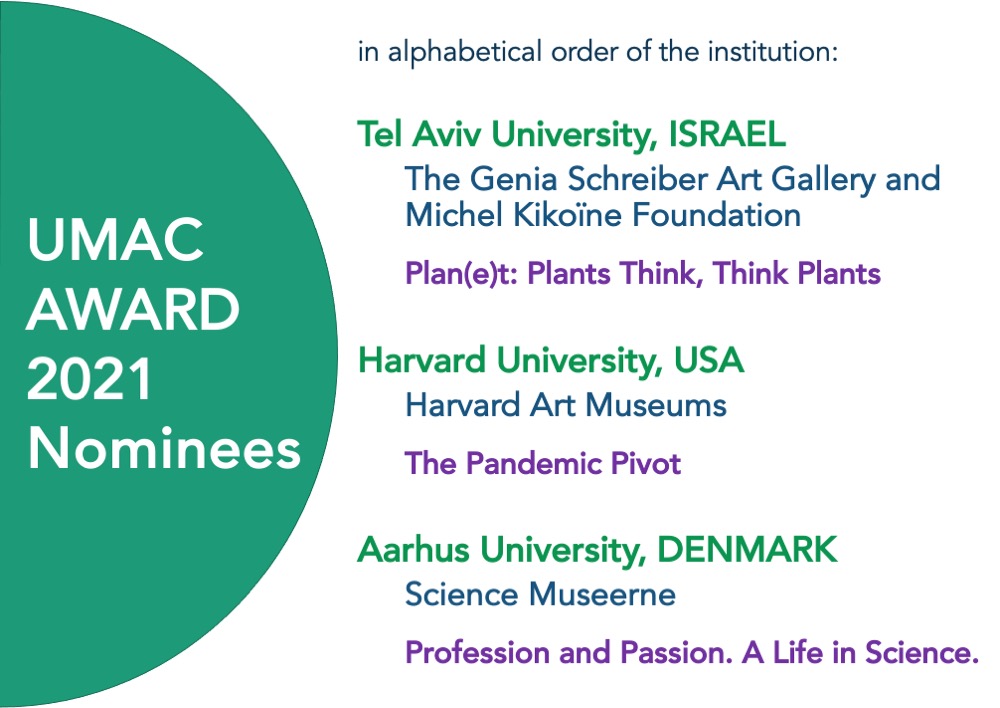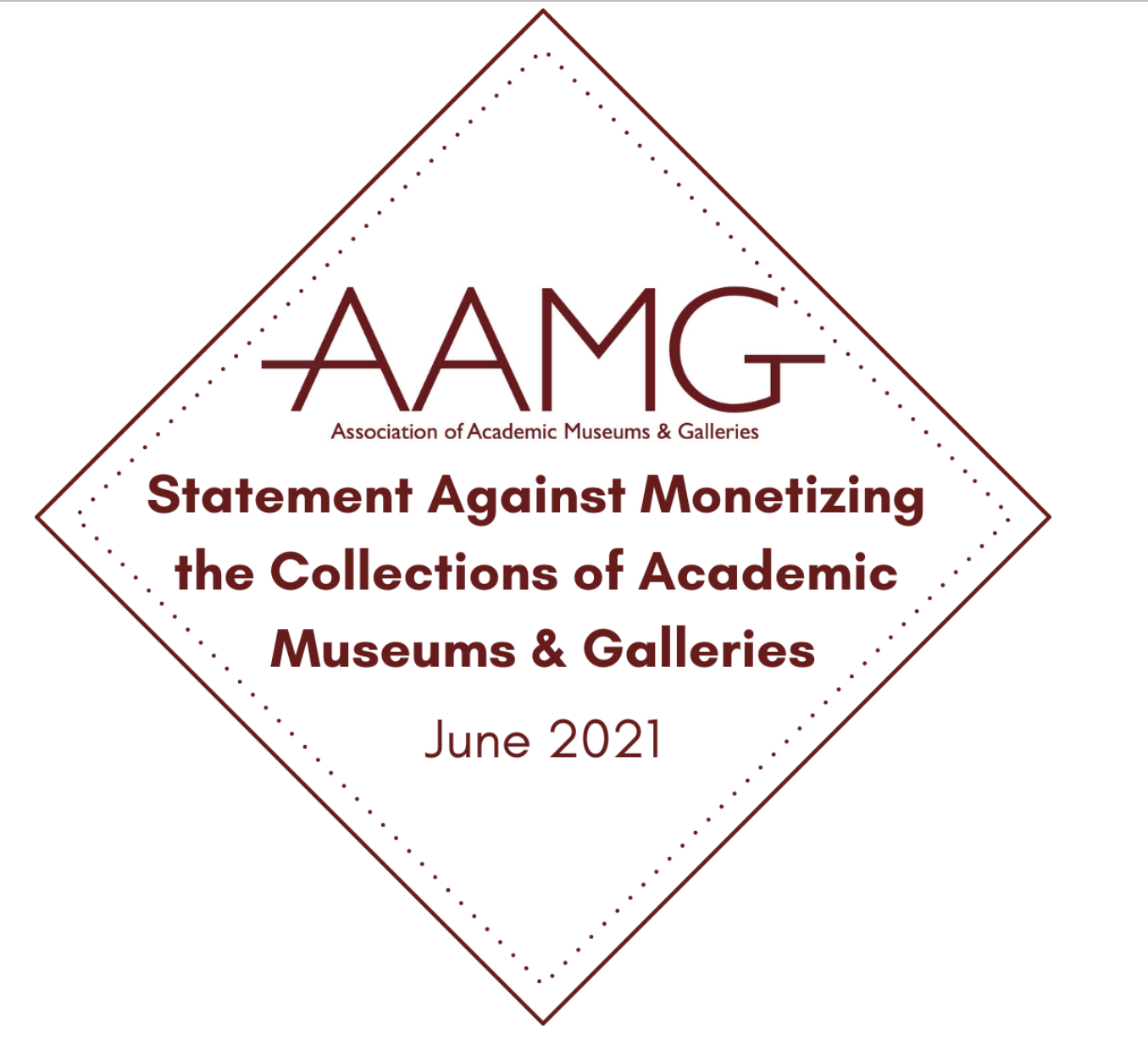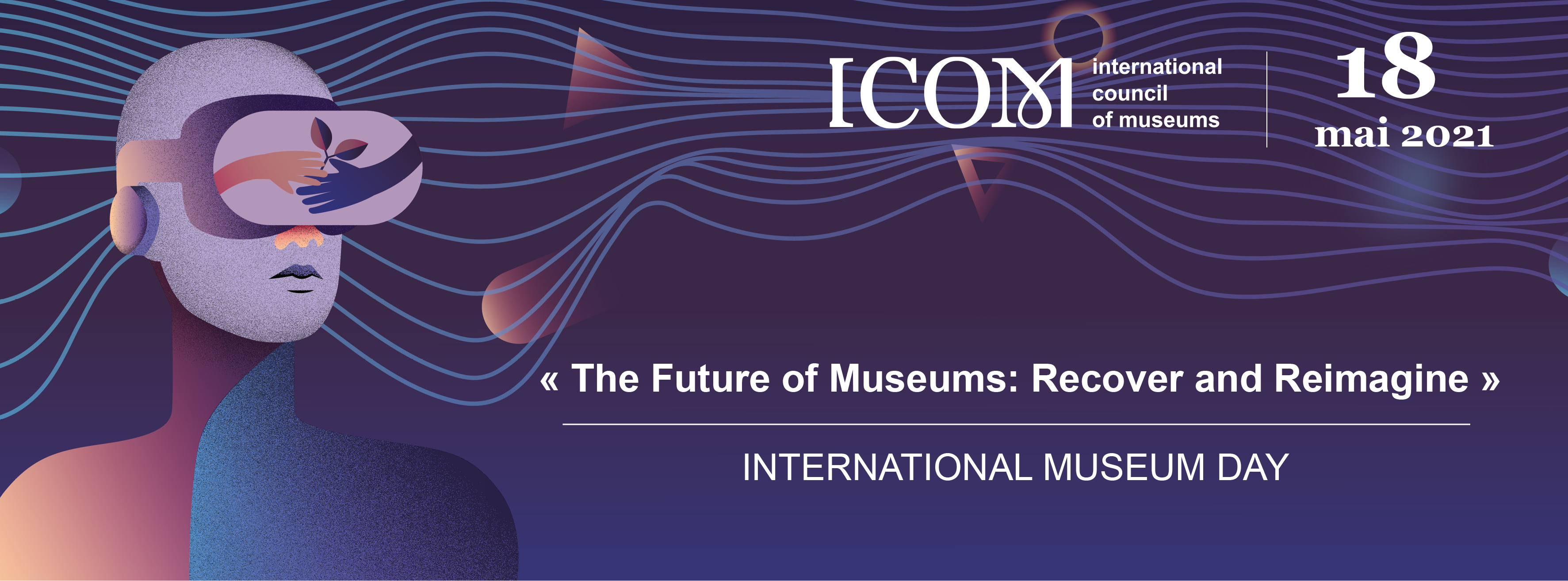Today, the shortlist of the three nominees to the UMAC AWARD 2021 was publicly announced by the Chair of the UMAC Award Committee, Akiko Fukuno.

To access the whole announcement on UMAC you tube channel:
Today, the shortlist of the three nominees to the UMAC AWARD 2021 was publicly announced by the Chair of the UMAC Award Committee, Akiko Fukuno.

To access the whole announcement on UMAC you tube channel:
UMAC celebrates excellence, creativity, and, more importantly, the impact of university museums and collections on their host universities, their communities and contemporary society through the UMAC AWARD, given every year.
In 2021 the candidates to the UMAC AWARD were amazing and UMAC will be announcing the shortlist of the 3 finalists on July 12, at 8 AM London/Lisbon time, live in our YouTube channel:
Conversations with each of the finalists will occur in the last week of August and the final announcement will happen during the UMAC-Universeum 2021 Annual Conference.

The COVID-19 pandemic created new challenges and financial constraints to many university museums and collections in the world.
The US-based Association of Academic Museums and Galleries (AAMG) has recently released a Statement Against Monetizing the Collections of Academic Museums & Galleries.
The Statement results from the Task Force for the Protection of University Collections, where UMAC participates through Vice-Chair Steph Scholten.
The deadline of the call for proposals for the UMAC-Universeum 2021 online conference has been extended until 18 April 2021.
Submit your abstract here.
ICOM is revising the museum definition dating from 2007. UMAC invites the global community of university museums and collections to participate in the ICOM consultation.
In 2019, the ICOM Extraordinary General Assembly held in Kyoto approved to postpone the vote on a new museum definition, deciding to enter into a process of consultation and improved cooperation between committees. Since then, committees around the world have led activities of consultation with their members. In December 2019, the Executive Board decided to expand the MDPP to include over 20 members, incorporating figures who represent varying opinions on the matter. In February 2020, with the committee renamed MDPP2 to reflect the change, members entered into a phase of establishing a new methodology for proposing a museum definition for the 21st Century. This process has had to take into consideration the specificities of different regions and specializations represented by the many ICOM committees, regional alliances and affiliated organizations. Continue reading from the ICOM Advisory Council Report.
The new methodology was presented by ICOM Define at the webinar “Defining the museum in times of change: a way forward” (10 December 2020). If you missed it, click on the image below.
UMAC invites the global university museum community (members and non-members) to participate in the public consultation.
Please fill out the brief survey here BEFORE 14 March, 2021.
‘The future of tradition in museology’, ICOFOM Study Series, 48 (1), 2020
‘Defining the museum: Challenges and compromises in the 21st century’, ICOFOM Study Series, 48 (2), 2020
Marta C. Lourenço, UMAC Chair: Defining the UNIVERSITY MUSEUM today: Between ICOM and the ‘third mission’, Speech 8 May 2019.
The Revista CPC, University of São Paulo, just released a full issue dedicated to university museums in Brazil (in Portuguese).
Get the full pdf here.

The year 2020 has been like no other. The COVID-19 crisis has swept the whole world abruptly, affecting every aspect of our lives, from the interactions with our loved ones, to the way we perceive our homes and cities, to our work and its organisation. Some already pressing issues have been exacerbated, questioning the very structure of our societies: the call for equality is stronger than ever.
Continue reading in ICOM’s website.
Exactly 6 months after the terrible tragedy of the Beirut explosion, UMAC and Universeum want to evaluate the situation of university museums and collections, and museums and cultural heritage in general.
Where are we now? What was achieved and what remains to be done? What are the main problems and difficulties?
Invited speakers:
Suzy Hakimian, Chair of ICOM Lebanon, Director of the MIM – Museum of Mineralogy of the University of Saint-Joseph
Leyla Badre, ICOM-Lebanon
Elsa Urtizverea, Heritage Protection Coordination, ICOM
Nadine Panayot, Curator, Archaeological Museum Associate, Professor of practice, Department of History and Archaeology, American University of Beirut
Maya Haïdar-Boustani, Director, Museum of Lebanese Pre-History, University of Saint Joseph of Beirut
Joanne Farchakh, Board of Blue Shield-Lebanon, Chair of BILADI NGO
Gilbert Nicholas and David Chelala ,Architects specialized in museums, who mobilised and coordinated the specialized team of volunteers.
Moderation:
Marta Lourenço, UMAC President
Sébastien Soubiran, Universeum President
ICOM’s committee for Museums of Science and Technology — CIMUSET — has just released the proceedings of its Kyoto Annual Conference in 2019.

Download and explore the publication here.